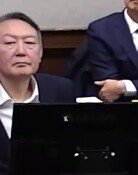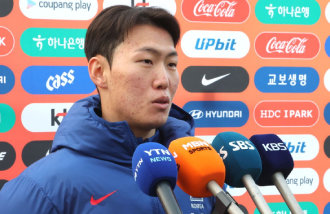[Opinion] Japan Should Not Misuse `Shrine Worship`
[Opinion] Japan Should Not Misuse `Shrine Worship`
Posted July. 30, 2001 09:07,
![[Opinion] Japan Should Not Misuse `Shrine Worship`](https://dimg.donga.com/egc/CDB/ENGLISH/Article/20/01/07/30/2001073029428.jpg)
While the Japanese people and neighboring countries are concerned about the distortion of the Japanese history textbooks, Japan`s Prime Minister Junichiro Koizumi`s pledge to worship at the Yasukuni Shrine has become a factor in an international conflict. As Prime Minister Koizumi pledged to officially visit the Yasukuni Shrine, in which Class-A war criminals are enshrined, on August 15, the `memorial day of defeat in war`, it is creating more stir.
Yasukuni Shrine, originally built in Kyoto right after the Meiji Reformation, was moved to Tokyo and was renamed as Yasukuni from Chohonsa in 1879. The purpose of the construction of the Shrine was not only to console the souls of people who had violent death but also to strengthen the emperor system by lifting the dead, who died for the Japanese imperial household, as gods and venerating them. The Shrine was managed by the government until right before Japan`s defeat in war, and was separated as an independent religious institution according to the Japan`s constitution on the separation of religion and politics.
Article three of the regulation of Yasukuni Shrine defines the characteristic of the Shrine as such; ``according to the words of Yasukuni, told by the Meiji emperor, this institution enshrines those who died for the country. The institution makes the virtue of Shinto known to the world by conducting worship. It also educates and nurtures those who believe in gods in the Shrine.`` According to this, Yasukuni Shrine is a religious organization which aims for the legally genuine religious activities. Therefore, there is no doubt that the expenditure of the government expense or the public funds for the Yasukuni Shrine is prohibited by article 89 of the Japanese constitution.
Yasukuni enshrines about 2.46 million Japanese who died in wars since the 19th century, including 7,751 Japanese who died in battles during the Meiji period, and others who died in West-South War, Ching-Japan War, Russia-Japan War, subjugation of Korea, World War I, World War II, Manchurian War, China-Japan War. In the fall of 1978, the Yasukuni enshrined 14 Japanese, including Class-A war criminal Hideki Tojo, in secret. When this was revealed in April the following year, not only the Japanese people but also neighboring countries were surprised. It is problematic that Class-A war criminals, along with Class- B and C war criminals, were described as the `martyrs of Showha, who were unilaterally executed by the allied countries`. However, it cannot be overlooked from a perspective of Korea, that they were interpreted to have coincided with the purpose, which says `according to the words of Yasukuni, told by the Meiji emperor`, since Korea was invaded by Japan.
Prime Minister Koizumi, since he had ran as a candidate for the president of Liberal Democratic Party in April, has insisted to worship at the Yasukuni Shrine saying that ``the prosperity of Japan is due to the sacrifice of the war dead. Why is it a violation of constitution to console their souls?`` Given the fact the most of the war dead who are enshrined in the Yasukuni Shrine are the soldiers who were mobilized to the Japan`s aggressive wars to other countries, the argument of Prime Minister Koizumi is same as the history textbooks that beautify the wars of aggression and lift up those who were initiated the foreign invasions. This was intended not only to lead the election favorably, but also to find a key to break through the Japan`s political and economic crisis by inducing the `people`s consciousness` irrationally.
Prime Minister Koizumi`s plan to visit the Yasukuni Shrine has brought about the opposition from the conscious intellectuals and the religious circles in Japan. It has also incurred the resistance from the neighboring countries. South Korea has strongly opposed to Japan through the Japan`s embassy in Seoul and the Minister of Foreign Affairs and Trade. The groups of bereaved families of Koreans have demanded for the return of the 21,000 tablets of Korean who were conscripted. China, through the Minister of Foreign Affairs, has strongly urged for the cancellation of the plan to visit the Yasukuni Shrine.
The South Korean government has enough reasons to oppose to Prime Minister Koizumi`s visit to the Shrine, unlike Japan`s response that it is an intervention of the domestic affair. First of all, since the Yasukuni Shrine is a religious organization, the Japanese government should be clear about the separation of religion and politics. Japan`s unclear stance on the separation of religion and politics reminds us of the Japan`s brutal enforcement of shrine worship by lifting up the status of Shinto on top of other religions during the Japan`s colonization of Korea.
Koreans, who had been the most serious victims of shrine worship, cannot but be suspicious of Japan`s Prime Minister`s official visit to the Yasukuni Shrine as an attempt to go back to the emperor system during the military regime. As Prime Minister`s official visit to the Yasukuni Shrine, in which Class-A war criminals are enshrined, represents the Japan`s national position, it can be viewed as an intention to justify or beautify the wars of aggression, which were maneuvered by the war criminals. This will become a new dilemma of the Japanese government, unlike its excuse that the history textbooks, which justify the wars of aggression, are not the official viewpoint of the Japanese government.



![쓸개 파열로 “사흘 남았다” 판정받은 시인…18년뒤 “너를 아껴라” 속삭여[손효림의 베스트셀러 레시피]](https://dimg.donga.com/c/138/175/90/1/wps/NEWS/IMAGE/2026/01/08/133113134.1.jpg)



